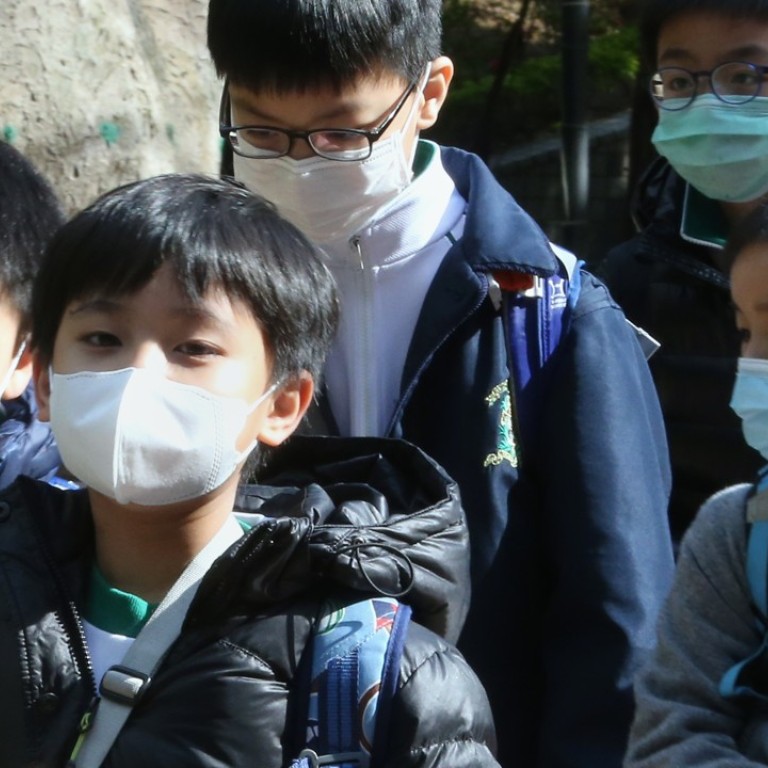
Letters to the Editor, March 3, 2018
More jabs and extra care will reduce flu risk
On February 7, the government of Hong Kong made the rare decision of bringing forward the festive break for all 1,600 kindergartens, primary schools and special needs schools in Hong Kong, instructing them to stop classes the next day.
Most had expected to close at the beginning or middle of the following week, exact dates varying from school to school. The sudden closure came after 171 outbreaks of flu at kindergartens and childcare centres, and 177 in primary schools since January 7.
Most schools had reopened by February 26. The father of a boy in the third year of kindergarten told your reporter that, while he was still worried about infection, he could not have his son skip classes until the flu season ended.
Many people fell sick amid the winter flu surge, with children, given their weaker resistance, particularly at risk. So I strongly support the Education Bureau for choosing to close schools early for the Lunar New Year.
However, it is not possible to suspend classes for prolonged periods of time just to prevent the spread of the disease. Therefore, I believe schools should take precautions to avoid the spread of infection within their premises.
Students should have their temperature taken so that any fever is detected early, and asked to wear a face mask and wash their hands regularly, to ensure good hygiene. Flu can be deadly, as we have seen this time as well. I hope a stepped-up vaccination programme and greater vigilance will see the city better prepared when the summer flu season strikes.
Kathy Fung, Kwai Chung
Reach out to ‘phubbers’ to break the habit
As social media takes over more of our lives, “phubbing”, or snubbing others while on a mobile device, has become common.
It’s easy to imagine that when you go to a restaurant with your family, everyone is looking at their smartphones until the food arrives, and even then everyone is taking photos of it.
Yes, cartoon illustrations in textbooks might be seen as a lighthearted way to highlight the harm caused by the overuse of smart devices, but the sad reality is that this is undermining basic, human interaction.
I think phubbing while engrossed in your smartphone and being lost in the virtual world, with no consciousness of your surroundings, is akin to an addiction. I don’t think warnings or advice would work for such people, because somehow they are addicted to the screen.
In my view, finding a topic to discuss with these addicts is a simple and effective way to stop them phubbing. If the subject interests them, maybe they would lift their eyes from the screen to face a fellow human being.
Some studies have found that people who are addicted to gadgets simply have nothing else to do and may only snack, play electronic games or watch videos. This is a new concept of addiction: disconnection from one’s surroundings for the sake of gadgets.
So, if people can build up human connections again, they can avoid the trap of e-addiction.
Playing a sport, chatting with friends, there are lots of ways to build up contact with others, or even yourself. When was the last time you looked at the sky, or just went for a leisurely stroll?
Ng Wai Nam, Tseung Kwan O
Happier bus drivers must be top priority
Yip Wai-lam, head of the new Full-time KMB Driver Alliance, led a brief strike on February 24, opposing KMB’s pay restructuring exercise. She said KMB did not care about driver welfare.
However, I do think KMB cares about its drivers, as it desperately needs full-timers, after the tragic bus crash in Tai Po just before Lunar New Year.
KMB since then has stopped hiring part-timers and assigning shifts to existing ones. This means the bus company may not have sufficient full-time drivers to maintain normal operations, so it is important for the company to ensure that the remaining drivers are happy in their jobs.
After two deadly accidents within months, the previous one in Sham Shui Po in September in which three people lost their lives, I believe the company will do all it can to ensure driver morale and public convenience, not to mention safety. However, I feel it is resorting to short-term measures.
Long-running grievances like overtime hours and complaints related to pay must be settled to the satisfaction of those who will be behind the wheel.
Owen Mak, Tseung Kwan O
Workplaces should support new mothers
Breastfeeding creates the closest bond between mother and child, and gives the baby nutrients that will ensure a lifetime of improved immunity.
But many Hong Kong mothers have to switch to formula because they only get 10 weeks’ maternity leave. Compare that to paid leave ranging from 20 weeks to more than a year in Europe. Also, few workplaces offer hygienic rooms to pump breast milk, or the new mums don’t get the time for it. This deprives the baby and leaves many mothers feeling guilty.
There is clearly a need for government policies that will ensure a more welcoming working environment for new mothers.
Zoe Liu, Kwai Chung

